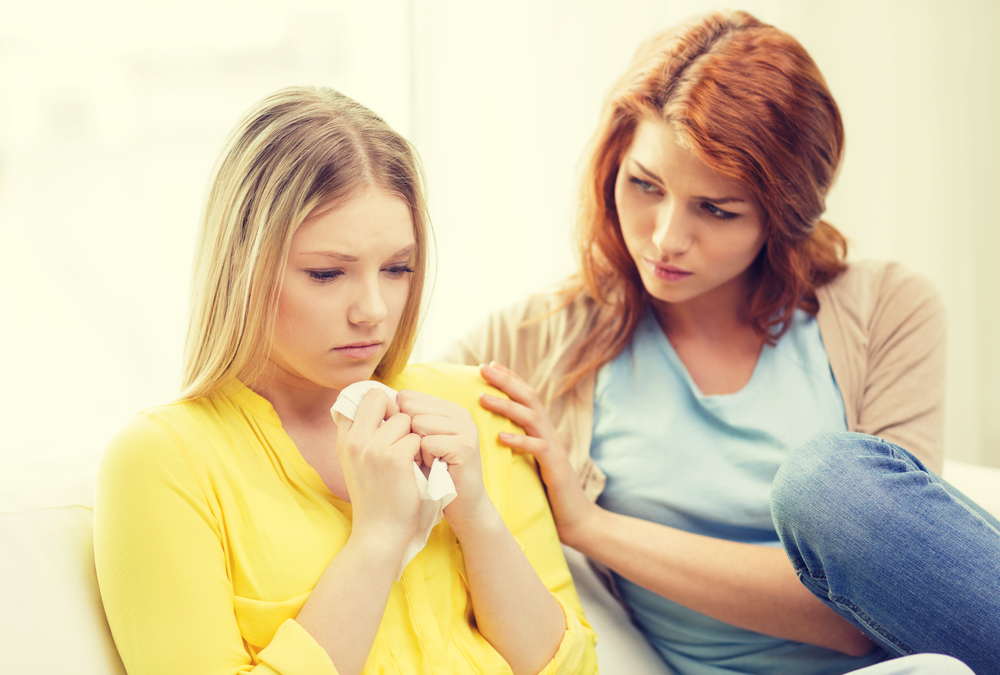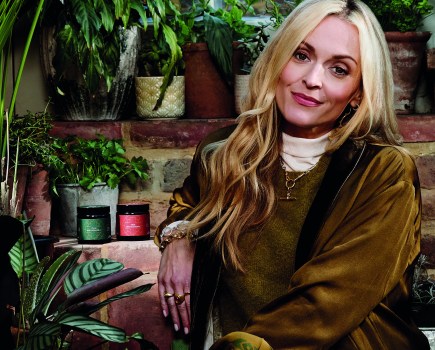“Kindness Matters” has been a popular phrase this year. Feelings of stress and anxiety can make you feel like you have nothing left to give others. But might extending an offer of kindness actually be the answer? Words: Claire Chamberlain.
Throughout 2020, you’ll likely have witnessed many acts of kindness and compassion, as people stood together during the pandemic and lockdown. From volunteering to support vulnerable neighbours, to organising vital Food Bank collections, to sewing scrubs for the NHS, it seems the nation stepped up when called on to be kind.
But what if during this time – and beyond – you’ve been struggling? Perhaps you’ve been feeling isolated and alone, anxious or depressed, or plagued by financial worries. If you’ve been feeling low, it can feel hard to put on a brave face and help those around you.
Can you be kind if you’re struggling?
Puja McClymont, NLP Life Coach at House Of Wisdom agrees that, if you’re struggling with your own demons, it’s easy to feel you’re not in a position to help others.
‘It’s definitely harder to extend kindness to others if we ourselves are feeling stressed and anxious or have been negatively affected by the pandemic or lockdown,’ she says. ‘At the best of times, if we’re feeling down, we tend to recluse and not reach out, let alone at a time like this when uncertainty looms in nearly every area of our lives.’
However, McClymont says that if you’ve been feeling this way, reaching out to others in kindness is actually an important step for your own mental health.
‘As humans, we need a connection to the community,’ she reveals. ‘Without it, we exacerbate negative self-talk and other harmful habits that adversely affect our mental wellbeing. When you reach out to others, you not only get to help them, but they may just be able to help you in return, by lending an ear to talk to.’
Kindness and mental health
Doing good deeds and improving your own mental wellbeing in the process can sound too good to be true, but the evidence is not just anecdotal; science has proven it to be the case.
‘There are many studies that show helping others isn’t just good for them, it’s good for you, too,’ says psychotherapist and founder of Headucate.me Mark Newey. ‘Volunteering is positively correlated with self-reported happiness, health and wellbeing. A study by Hunter and Linn demonstrated that, when compared with those who did not volunteer, older adults who volunteered regularly showed greater satisfaction in life and exhibited reduced rates of depression and anxiety.’
But why is this? ‘The reason is a hormonal one,’ continues Newey. ‘When we help others, we get a release of oxytocin (the bonding hormone mothers get as they give birth) and dopamine, the reward hormone. This makes us feel good. It also means there’s no room for the fight or flight hormones, adrenaline and cortisol. Helping others is genuinely good for our health.’

One good deed deserves another
Life coach and author of On Purpose, Steve Chamberlain that kindness, compassion and generosity are key when it comes to boosting your own mental health, as well as forming positive and fulfilling relationships with others.
‘In being kind to someone else, you’ll naturally be thinking about them and how you might be able to offer support,’ he says. ‘This takes your attention away from your own problems and helps you see the bigger picture. While this comes from a place of altruism, you may also receive a kind act or gratitude in return, which is likely to leave you feeling more positive. Kindness breeds kindness, and the emotions that follow are likely to be positive and self-enhancing.’
Small acts of kindness
The good news is, you don’t need to make grand gestures or even spend any money to be kind. A simple smile at a stranger in the street or asking how a friend or neighbour is (and truly listening) can have a powerful impact on how someone feels about themselves.
‘The easiest small act of kindness you can do is to meet someone for a walk,’ suggests McClymont. ‘The closeness of being in someone else’s company will immediately make you feel better. If you’re unable to get out, nothing beats a good video call with lots of laughter. Maybe watch something together (virtually) or virtually cook together – take mundane tasks and make them sociable.’
If you’re concerned about someone else’s mental health, it can feel hard to start a conversation with them about it – many of us worry we’ll say the wrong thing. But just letting them know you’re there for them is a wonderfully compassionate act.
‘If you feel you’re in a position to broach it with them, it’s important that you give them the opportunity to open up in a way that feels safe and supportive for them,’ says Chamberlain. ‘You may want to explain why you’re concerned, then let them know you’re there for them and ask if they’d be open to having a conversation. Ultimately, you can only open the door – it’s their choice to step through and open up. If they do wish to share with you, a valuable first question can be, “What do you need?” We may assume they’re looking for solutions to their problems when actually they just want someone to really listen. Let them be your guide – your role is simply to listen deeply and offer support or guidance as appropriate.’
Kindness is an inside job
If you’ve been feeling down or have been struggling with low self-esteem, it’s often easy to forget how important it is to be kind to yourself, too.
‘Choosing to be compassionate and patient with yourself is one of the kindest things you can do,’ reveals Chamberlain. ‘We often have a tendency to speak to ourselves in a way that we wouldn’t dream of doing to those around us. So make sure you have your own back and choose to be flexible and supportive of yourself as you move forwards. Choose to do things you enjoy. For some, this might be picking up your favourite book, for others, it’s a walk in the woods or going for a run. Each of us is unique, so tune into what’s always made you feel content and do more of it.’
‘If you’re struggling with the “be kind” messaging, it’s important to understand where the poster is coming from,’ adds McClymont. ‘They may simply post a hashtag and do nothing else – it may just be because it’s a trend that day. As with anything on social media, the healthiest way to consume it is to not take it all at face value. If social media is getting too much, spend more time in the real world with those who are naturally kind to you and who you can be kind to easily, too.’







